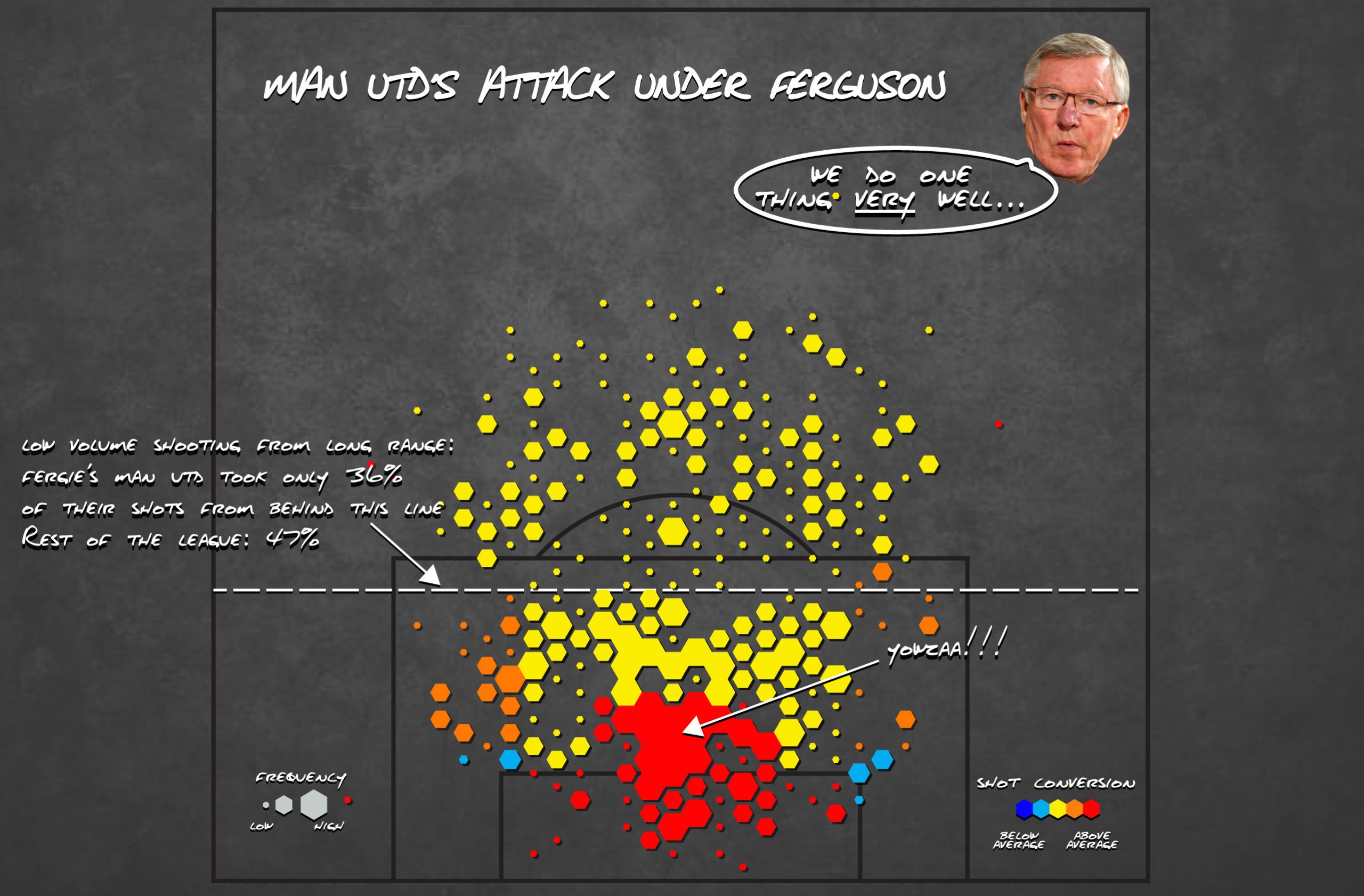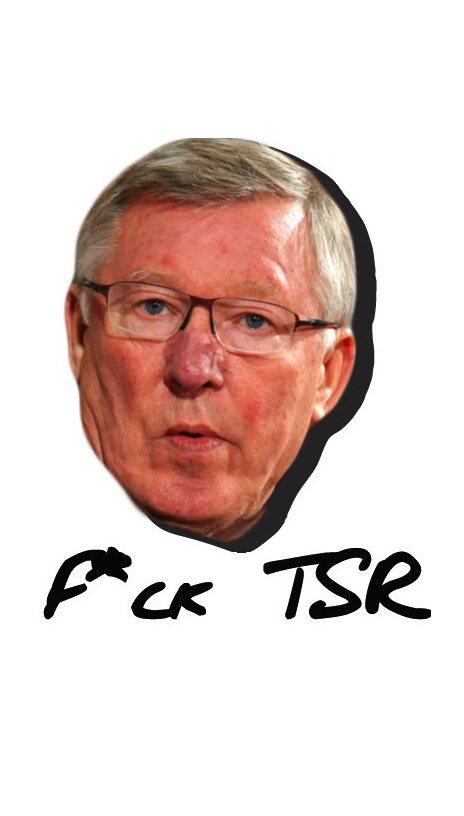The Past is a Foreign Country; That’s Why It’s So Easy to Critique
When the facts have seeped out, when you’ve had time to think things through, it's all so obvious: Germany had the best, deepest squad in the tournament; Luis Suarez can make any manager look like a genius; and "c'mon, you never realised he was on 'roids?".
Haha! Totally joking about that last one... Totally. #GTL.
But some things defy explanation, they just sit there as you examine them, laughing back. Some things are like Manchester United’s final season under Alex Ferguson.
Okay, maybe I’m overstating it a little, but that 2012/13 season is a puzzle.
United cruised to the title, closing things out at Villa Park with a couple games to spare. RVP, Shrek and the Buoys clubbed together to score 82 goals in 38 games, gifting Alex Ferguson his 13th and final Premier League title.
So far, so good.
What's odd is that United posted the stats profile of a good, but certainly not great, team. Total Shot Ratio (TSR), usually a pretty good indicator of quality, ranked United in 8th place for the 12/13 season, sandwiched between Southampton and Newcastle. On its own that's not a game-changer, after all, TSR would have put Spurs atop the league that same season. But even Expected Goals (ExpG) models, which take into account more complex shot data like distance from goal and where the pass prior to the shot was played from were are flummoxed by how this version of United so drastically outperformed expectations.
Whatever Remains, However Improbable, Must Be the Truth?
That, apparently, is the opinion of Dan Altman.
"I computed the probabilities for the 2012-13 season... For Manchester United, the difference between expected goals and actual goals was sixteen. Without those sixteen goals, Manchester United probably would have finished fifth instead of first."
That's a quote from Altman's latest piece in the New Yorker on the same topic, in which he uses his bespoke shots model to break down exactly how United overachieved offensively.
His conclusion? Multi-dimensional luck (more or less)[1].
Luck on penalties and own goals. Luck on free-kicks and corners. And then some more luck converting chances in open play. He says that if you ran the season back in his shots model, United would be extraordinarily unlikely to score such a high number of goals again. In which case, the team probably wouldn’t have won the title, in which case, Alex Ferguson might not have been quite so quick to retire, in which case the world would be short a great wordsmith, (and Davey Moyes wouldn’t be aging in dog years).
Altman’s points are pretty convincing, especially in the light of how much United have struggled since then, but even he admits that the odds of this level of over-performance are pretty fracking long.
Which is why there might be a different answer. I’m not saying he’s wrong, but I think there’s an explanation that demands shorter odds.
Just In Case, Here’s What We’re Looking At
Usually, when I'm looking for an answer, it helps to take things down from the abstract clouds of ExpG models and put them into a form that’s more easy to understand.
Here’s Man United’s shot chart from the 2012/13 season.

One thing is probably going to stick out to you - that big red clump with the YOWZA!!! annotation (or maybe you're a data hipster, in which case you're probably into the five light-blue hexs). When Altman says Man United overachieved their expected goal output, this is why. In Fergie’s last season, Man United took the juiciest shots in the game (close to and directly in front of goal) and squeezed, and squeezed, and squeezed some more. The shots in that bright red area were converted at roughly 13% above what you would expect the average Joe (Allen) to do with the same opportunities. By my calculations, based on the number of shots, that's worth somewhere between 17-18 goals over the course of the season.
(I swear I'm not making this up...)
Now, Marco Van Basten’s one hell of goal-scorer, but a) He retired in 1995, and b) He never played for United. Robin Van Persie did, but he's just one (non-superhuman) dude, and he didn’t take ALL of those shots…
At any rate, other than that one scorching zone, United are surprisingly average finishers – a couple points stronger on the wings, but nothing to write home about[2].
Hmmm…
You have to say, it doesn’t look completely random. It’s not like United are lights out from a bunch of unconnected areas. This is a team that is PHENOMENAL at scoring in one area.
Why? Well if you want answers this morning, you’re shit out of luck. I’m tired and I’m looking forward to the latest episode of Serial.
Tune in for part two tomorrow.
[1] I’m shortchanging Altman a little bit here. He also talks about things like RVP's finishing quality, but you can read it yourself, ‘cause, you know, the Internet.
[2] Interestingly, this version of United doesn’t shoot a lot from distance, which probably goes some way to explaining the low TSR numbers, if not the ExpG anomolies.
